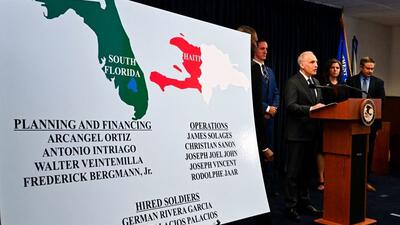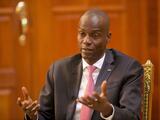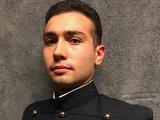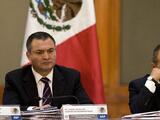Haiti assassination: how much did the US government know about the plot against Moïse?

In April 2021, the owners of a small South Florida security company met to discuss acquiring weapons and military equipment as part of a plan to remove Haiti’s President, Jovenel Moise.
Over the course of several meetings, the security company claimed to have ties to the FBI and the Justice Department and suggested that the United States government backed its plan to remove Moise.
At least one such meeting was attended by FBI agents who claimed that the security firm "attempted to draw FBI personnel ... into a discussion about regime change in Haiti."
U.S. officials confirmed last month in court documents that the meetings took place, but denied that anyone in the government “sanctioned” the plot to remove Moise, which resulted in his murder three months later.
Left unaddressed, however, were questions about what the FBI agents learned about the plot and whether they tried to stop it, or if they warned anyone in more senior ranks of government, or the U.S. intelligence services.
Miami area security company hired the alleged Colombian assassins
According to court documents, the Colombians were hired by CTU Federal Academy in Miami, the same firm that hosted the meetings with the FBI agents in Doral, Florida a few weeks earlier.
Several of the alleged conspirators, including the owners of CTU Federal Academy, Antonio Intriago and Arcangel Pretel, were arrested last month and accused in federal court with conspiracy to murder Moise. They face life sentences if found guilty.
At the time of the meetings in Doral, Pretel was also an active FBI informant, according to court documents, including an affidavit by one of the FBI agents investigating the plot. Pretel,a Colombian citizen who moved to Miami in 2015, was “deactivated” after the assassination, court documents revealed.
Two other jailed men accused in the plot, a Haitian-American former policemen, Joseph Vincent, and a convicted former drug trafficker, Rodolph Jaar, were also former DEA informants, though they were not active at the time of Moise’s murder, according to court documents.
The Colombians feel duped by CTU
A lawyer for the Colombian soldiers told Univision that the former Colombian soldiers acted under the belief that the plot was sanctioned by the U.S. government and were tricked by CTU.
"They were absolutely convinced that they were working for part of the U.S. government; I don't know if it was the FBI or the CIA or the DEA," said attorney Sondra McCollins, who represents several of the detained men. "They were told that they had to detain a very important person and that the 22 (Colombians) had to accompany them," she added.
The soldiers were recruited in Miami by CTU Federal Academy and flew to Haiti on tickets purchased by the company. Intriago traveled from Miami to meet with them and they received regular briefings by Pretel via Zoom.
The soldiers flew to Haiti on tickets purchased by CTU Federal Academy. Intriago traveled from Miami to meet with them and they received regular briefings by Pretel via Zoom, according to two sources who spoke to Univision.
How the plot evolved into an assassination
CTU's initial plan was to aid regime change, not assassination, according to court documents. But something changed between April and July. The night before the operation, all participants were informed that the mission was to kill the president, according to federal prosecutors in Miami.
On the night of the assassination, one of the men in the convoy that arrived at Moise's residence shouted through a megaphone that it was "a DEA operation," something the U.S. government has strongly denied.
"So they arrive at the house ... and they don't know how to get in ... and one of them leans on the gate and it opens. They don't even have to break anything down," McCollins said.
Three of the assailants found Moise and his wife in their bedroom. Their two children hid the bathroom with the family dog. Moise was shot 12 times and killed instantly; his wife was wounded but survived.
Supposedly, the plan was to install a new government and the Colombians were to be integrated as the new president's security team. But within hours all the Colombians were arrested, and the other conspirators - some Haitian politicians and a Supreme Court magistrate among them - disappeared.
Doubts about the US role
As details of the judicial proceedings in Miami and Haiti emerge, disturbing questions have arisen about the role the U.S. played before, during and after the attack.
McCollins contends that most of the detainees thought that Pretel, who was identified by the prosecution as one of the masterminds of the operation, was an official U.S. government liaison.
"We were convinced that we were doing, that we were supporting legal work for the FBI and the State Department," Juan Carlos Yepes told Univision Noticias in a video sent from prison in Haiti.
In the Zoom meetings, Pretel dressed as a military officer and let people around him believe he was a former colonel in the military. It is unclear whether he ever served in the Colombian military. Univision could not find any record of his service.
According to the Colombian civil registry, the 50-year-old businessman was born in Cali. According to some of the relatives of the Colombian ex-soldiers detained in Haiti, Pretel worked closely with the military in Cali in the 1990s during the hunt for the leaders of the Cali drug cartel.
Pretel circulated photos of him in front of U.S. government offices. Univision obtained one photo of Pretel in front of an official-looking wall with the logos of several branches of the US military, including the Army, the Marine Corps, the US Navy and the Air Force.
It turns out that the wall is located in a public area of Miami International Airport, known as the ‘Wall of Honor’ memorial, listing the names of South Florida military men and women who died serving in the global war on terrorism.
Pretel, in fact, was no stranger to the U.S. government. In the FBI agent's affidavit, Pretel is describes as a "confidential source." But, the FBI alleges, the Colombian leader of the operation "may have tried to use" his prior relationship with the U.S. government to suggest to others that CTU was affiliated with the FBI or the Justice Department.
This was false, according to the government. The agent added that Pretel "did not disclose to the FBI" the plot to assassinate Moise.
What did the FBI know, and when?
But many questions remain.
For more than a year the FBI declined to comment on rumors about Pretel’s relationship with the agency, even after lawyers for CTU issued a press release described the April meetings with agents.
In court documents the FBI now admits that agents were present at a meeting in which the alleged conspirators discussed regime change in Haiti. "An FBI agent told the men, in substance, that the FBI could not help them because Haiti had to solve its own problems," the affidavit stated.
The FBI clarified that Pretel had been an informant "on matters unrelated" to Haiti. He is believed to have collaborated as an unidentified informant in a case in Colombia related to weapons destined for the FARC guerrillas, according to Colombian media.
What is not known is how much concern this type of meeting caused the agency.
US law and the 'Duty to Warn'
Under U.S. law, it is a crime to conspire “to kill, kidnap, maim, or injure persons” and damage property in a foreign country. Following numerous futile attempts by the CIA in the 1960s to assassinate Cuban leader Fidel Castro, “no person employed by or acting on behalf of the United States Government shall engage in, or conspire to engage in, assassination.”
U.S. officials also have a ‘Duty to Warn' if they come across information of a plot to kill or otherwise harm a foreign head of state. It is not known in this case if that happened.
The FBI declined to comment on the case. The State Department did not immediately respond to a written request for comment on what it knew about the plot.
The Colombian former soldiers are also left wondering if they might have avoided being led into a trap if the FBI had intervened in time to halt the plot. Three of the Colombians died in the aftermath of the assault.
"Now we learn that FBI agents claim to have been deceived by that American security company. If they were fooled, what makes them think that we weren't fooled," Yepes said in the video sent to Univision.
Former Haitian policeman was DEA informant
Pretel was not the only informant linked to the Moise case who has tried to link the government to the plot.
The ex-cop, Vincent, also claims he was in contact with a DEA agent while the plot was developing. Univision Noticias decided not to identify the name of the agent to avoid any unnecessary risk of exposing undercover government operations.
"Everything that happened up to the moment of the shootings and also afterwards, my client was constantly in contact with the U.S. government," attorney Regina Borges de Moraes, a former U.S. Attorney for South Florida, who represented Vincent at the beginning of the case, told Univision.
The attorney clarified that Vincent was no longer an active informant when Moise was killed, but claims he had worked on multiple previous infiltrations. "He went into that on his own. But he was informing the handler and also the State Department of what was going on," Borges said.
Borges contends that the DEA agent with whom his client communicated was in another country at the time. That agent, Vincent told him, offered emergency help to get him out of Haiti.
In the end, the DEA convinced Vincent to turn himself in to authorities in Haiti the day after the murder.
Univision obtained a record of the phone numbers Vincent dialed in the hours after the murder. One of the numbers appears to be that of his former handler in the Bahamas, whose name Univision is withholding to avoid unecessarily exposing the identity of a government agent.
Univision called the number and asked to speak to the agent, using his name. The person who answered immediately recognized the number and asked "how did you get this number.?" He then offered to put a message through to "a point of contact."
Vincent was extradited from Haiti to the United States where he faces conspiracy charges for Moise's murder.
Rodolphe Jaar, alias 'Whiskey' was also a DEA source
Another defendant with ties to the U.S. government is Rodolph Jaar, a Haitian businessman. Jaar was convicted in 2013 in Miami for the theft of 50 kilos of cocaine valued at one million dollars while working as an informant for the DEA.
On Monday, Jaar became the first of the alleged conspirators to plead guilty and admitted he helped provide funds to buy weapons used in the attack.
So far, the investigation, led by the FBI and the Homeland Security Investigations (HSI) division, has resulted in the arrest of 11 people in Miami on conspiration charges reltaed to the Moise assassination.
Two of the former Colombian soldiers who participated in the attack on Moise's home are among those jailed in Miami awaiting trial on the same charges. The rest are being held in Haiti.
A red light infraction and FBI protocols
In a curious twist, the Justice Department asked the judge in the case to impose special security measures to protect national security information, an indication that the evidence could reveal secret details of the actions of U.S. government intelligence agents or informants.
The FBI's apparent conflict of interest in the case has raised public suspicions. "We are relying on the FBI to conduct this investigation knowing that the FBI may have information that affects the investigation but that it doesn't want made public," said Jake Johnston, a researcher at the Washington, D.C.-based Center for Economic and Policy Research (CEPR) who is closely following the case.
"It definitely speaks to why there is such a need for outside oversight or transparency in this process, especially by Congress," he added.
Pretel was arrested on February 14 in Miami and remains in jail. Since the assassination Pretel had not spoken publicly and left little trace of his life in the city except for a few traffic violations. In one, he was caught running a red light. He had to pay a $277 fine.
Univision was unable to speak to his lawyer due to a conflict over who is representing him.
When a reporter asked about Pretel's role in the conspiracy at a press conference in Miami, South Florida prosecutor Markenzy Lapointe, dodged the question.
"Whatever protocol the FBI uses in dealing with sources and their conduct, that's gonna be for another day," he said.




